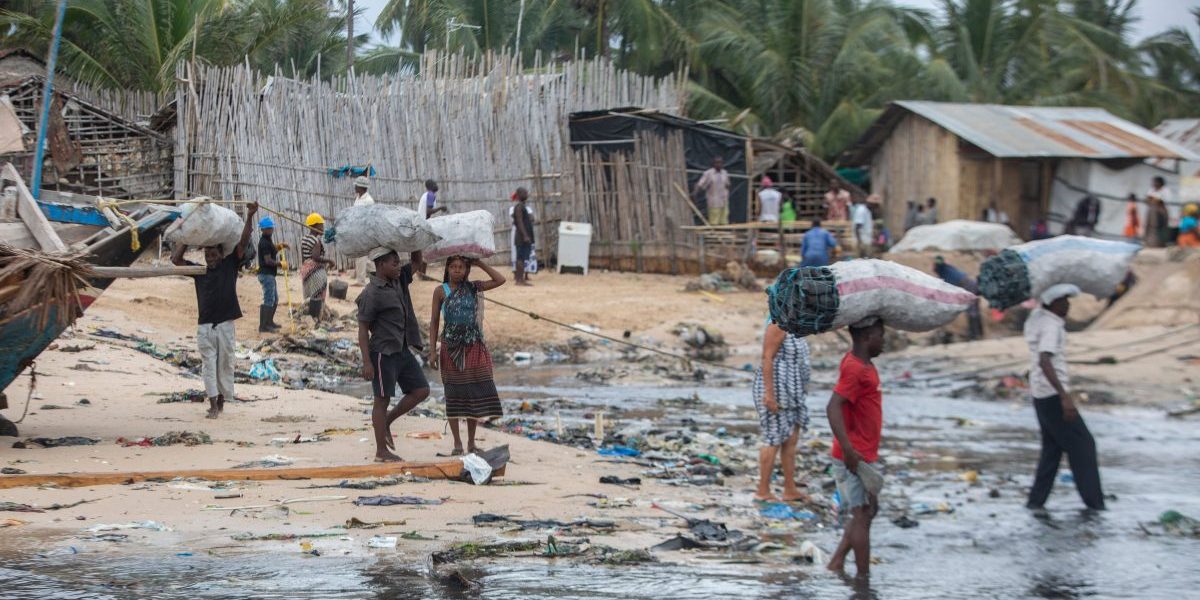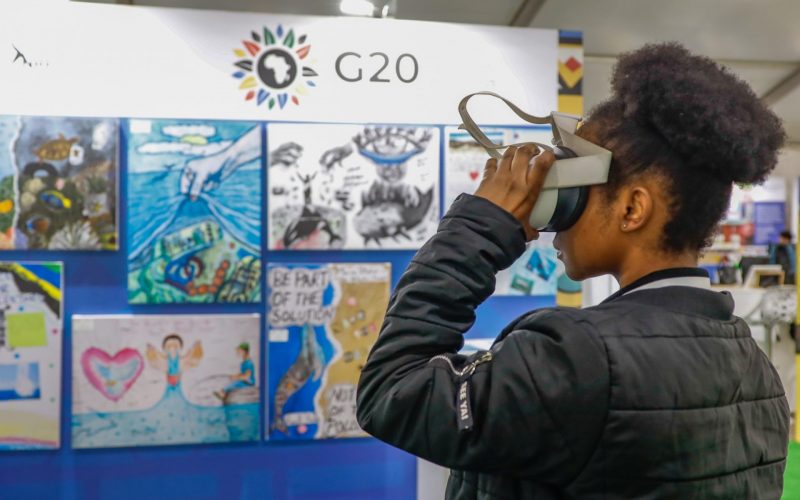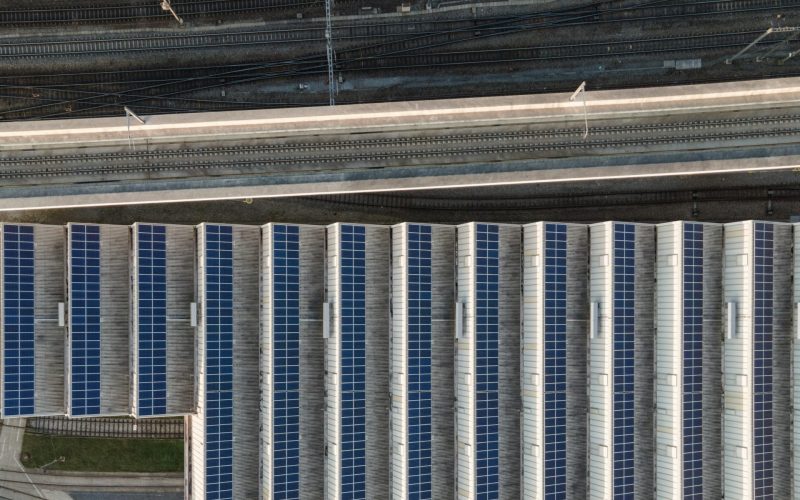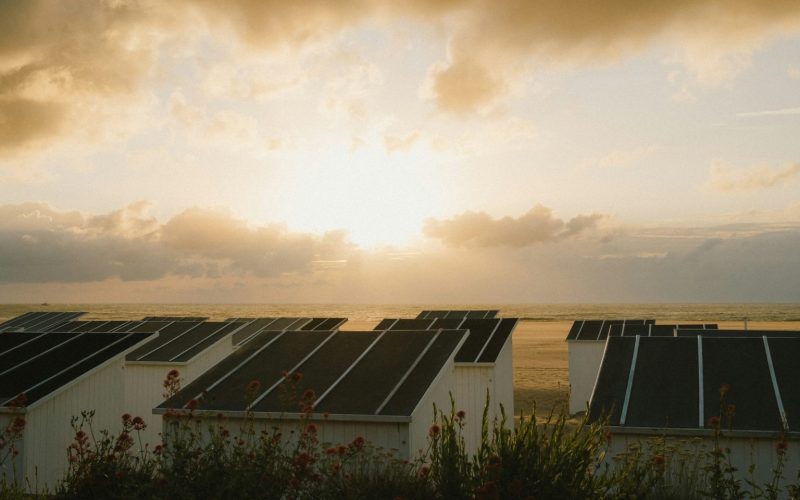Recommendations
- The Government of Mozambique needs to implement robust mechanisms that can support the inclusive, transparent and equitable governance of natural resources.
- Mechanisms should aim to mitigate the negative effects of resource extraction, enhance social, economic and environmental resilience and prioritise the well-being of marginalised communities.
- Responses should be motivated by adequate understanding of the political dynamics at play in Cabo Delgado and deep knowledge of the drivers of the conflict.
- The Government of Mozambique should foster dialogue with local citizens to manage public expectations related to the economic impact of gas developments.
Executive summary
The rise of a violent extremist group in Mozambique’s Cabo Delgado province has posed a threat to the security of local communities since its emergence in 2017. The Islamist militants have halted foreign-owned liquefied natural gas projects that have the potential to become one of Africa’s largest investments, using violence to seize land and garner attention for their cause. The damage to the social and economic fabric of life in the area has been significant. Cabo Delgado is in dire need of economic upliftment given that the region is plagued by poverty, inequality and unemployment. Accounts of the conflict frequently cite social and political tensions and economic underdevelopment as key drivers of the violence, but the role of adverse climatic conditions is often overlooked. Cyclones, floods and a series of health crises have created an environment conducive to the emergence of conflict, as infrastructure damage and food insecurity have deteriorated the quality of life in Cabo Delgado – conditions which the extremists have exploited for recruitment.
Introduction
Mozambique’s most northern province, Cabo Delgado, has encountered escalating violence and bloodshed over the last few years. The province remains widely underdeveloped and has endured political marginalisation for years.1Intelyse LCC, ‘Southern African Jihad: The Cabo Delgado Insurgency’, https://intelyse.com/wp-content/uploads/sites/7/2019/12/INTIS-MOZ-Southern-African-Jihad-The-Cabo-Delgado-Insurgency-1of3.pdf.More recently, local dissatisfaction about the unequal distribution of wealth and benefits from the region’s natural resources boom appears to be fuelling the conflict. The violence has destabilised the region since October 2017 and threatened the development of the region’s offshore gas reserves. In April 2021, Total made the decision to halt its liquified natural gas (LNG) project in Palma district for at least a year until the security situation has been resolved.2Paul Burkhardt, Francois de Beaupuy and Borges Nhamire, ‘Total suspends $20BN LNG project in Mozambique indefinitely,’ Al Jazeera, April 26, 2021, https://www.aljazeera.com/economy/2021/4/26/total-suspends-20bn-lng-project-in-mozambique-indefinitely.The project is vital to the country’s political and economic ambitions. In the same month, the Southern African Development Community (SADC) planned a regional military intervention by deploying a task team to Mozambique to address the humanitarian crisis.3Cabo Ligado, Cabo Ligado Monthly: April 2021 (ACLED, 2021), https://acleddata.com/acleddatanew/wp-content/uploads/2021/05/Cabo-Ligado-Monthly-April-2021.pdf.The province has experienced a total number of 887 organised violence events, with a total number of 2 867 reported fatalities.4UN High Commissioner for Refugees (UNHCR), ‘UNHCR Scales up Response as Thousands Flee Attacks in Northern Mozambique,’ The UN Refugee Agency, April 6, 2021, https://www.unhcr.org/news/briefing/2021/4/606c17bf4/unhcr-scales-response-thousandsflee-attacks-northern-mozambique.html#:~:text=Three%20years%20of%20turmoil%20in,ongoing%20violence%20does%20not%20stop.In April 2021, the UN Refugee Agency estimated that approximately 700 000 people from northern Mozambique have been displaced as a result of the past three years of turmoil, warning that this number could increase significantly over the course of the year if the violence does not cease.5UNHCR, “UNHCR Scales up Response”.This policy brief aims to examine the possible environmental and resource governance drivers of the violent conflict in Cabo Delgado.
The conditions for conflict
The discovery of offshore natural gas reserves a decade ago by multinational companies ENI and Anadarko seemed to promise economic upliftment to Northern Mozambique, a region plagued by poverty.6Ilham Rawoot, ‘Gas-rich Mozambique may be headed for a disaster,’ Al Jazeera, February 24, 2020, https://www.aljazeera.com/opinions/2020/2/24/gas-rich-mozambique-may-be-headed-for-a-disaster.The reality, in contrast, is grim. Indicators of underdevelopment were present prior to the gas finds, with the region experiencing natural disasters, including a series of cyclones that damaged infrastructure and homes and caused floods that destroyed crops and livestock. The conflict itself has exacerbated insecurity in the region, with the COVID-19 pandemic taking a further social and economic toll. The culmination of these factors, together with insufficient humanitarian aid, has resulted in the displacement of thousands of people and high rates of unemployment and inequality.7ReliefWeb, ‘Two Years since Cyclone Idai and Mozambique has Already Faced an Additional 3 Cyclones,’ press release, March 13, 2021, https://reliefweb.int/report/mozambique/2-years-cyclone-idai-and-mozambique-has-already-faced-additional-3-cyclones.
Mozambique is considered one of the world’s poorest countries, with the UN Development Programme ranking it 181 out of 189 countries on the Human Development Index.8UN Development Programme (UNDP), “The Next Frontier: Human Development and the Anthropocene” (briefing note for countries on the 2020 Human Development Report, UNDP, 2020), http://hdr.undp.org/sites/all/themes/hdr_theme/country-notes/MOZ.pdf.It is estimated that 72.5% of the population lives in poverty.9UNDP, ‘Human Development Reports: Mozambique’, http://hdr.undp.org/en/countries/profiles/MOZ.Cabo Delgado is the second poorest province in Mozambique, with agriculture as the primary source of income and resource extraction an additional major opportunity for employment.10Sergio Chichava and Chris Alden, “Cabo Delgado and the Rise of Militant Islam: Another Niger Delta in the Making?” (Policy Briefing 221, South African Institute of International Affairs, Johannesburg, 2020), https://saiia.org.za/research/cabo-delgado-andthe-rise-of-militant-islam-another-niger-delta-in-the-making/.Despite hopes that growing foreign investment in the province would lead to job creation, increased government revenue, industrialisation (as a result of greater domestic access to energy) and economic spill-over to the region, there are few reported positive outcomes associated with LNG operations in Cabo Delgado. The province’s major projects include a $20 billion investment by Total, the $30 billion Rovuma project by ExxonMobil and ENI’s $4.7 billion Coral Floating project.11Friends of the Earth and JA!, The Impacts of the LNG Industry in Cabo Delgado, Mozambique (Friends of the Earth, 2020), https://www.banktrack.org/download/the_impacts_of_the_lng_industry_in_cabo_delgado_mozambique/impacts_of_lng_in_mozambique_by_ja.pdf#:~:text=Now%20Cabo%20Delgado%20is%20home,and%20CNPC)%20worth%20%2430bn.Once plans had been made for the investments, several hundred families were relocated to provide space for the onshore facilities of the LNG projects. Although promised compensation, many local people were reportedly dissatisfied with the process, saying they had lost access to their cultivated land and fishing grounds.12Rawoot, “Gas-rich Mozambique”.Compensation was cited as inadequate in some cases, as local people were given arable land that was too far from their homes or plots that encroached on other communities’ borders, resulting in conflict. Fishermen have also reported that ‘initial gas development operations and drilling are affecting fish stocks.’ 13Rawoot, “Gas-rich Mozambique”.In addition, the anticipated job creation in the emerging industry has not materialised.
The area has experienced violent attacks by Islamist militants who are known locally as ‘Al-Shabaab’ (with no apparent affiliation to the group in Somalia, however).14Institute for Security Studies, ‘Is another Boko Haram al-Shabaab erupting in Mozambique?’, https://issafrica.org/amp/iss-today/isanother-boko-haram-or-al-shabaab-erupting-in-mozambique.The extremists are exploiting local communities’ resentment of foreign investment and disillusionment with government, and are using financial incentives and intimidation to recruit fighters. There are a multitude of factors that account for the province’s instability and the willingness of many citizens to join the armed group. Corruption, political and social tensions, and economic stagnation are frequently cited as key causes of the conflict, but Mozambique’s significant susceptibility to climatic shocks and impacts is often overlooked. Cyclones Idai and Kenneth in 2019 are perhaps most noteworthy in this regard, as they resulted in damage to infrastructure, decreasing food supplies, increased unemployment and a greater need for humanitarian assistance, which was thwarted by the militants in Cabo Delgado.15UN Office for the Coordination of Humanitarian Affairs, ‘Mozambique’, https://www.unocha.org/southern-and-eastern-africa-rosea/mozambique.The extent of destruction is partly explained by the fact that it was the first time in recorded history that the country experienced two cyclones in one season, with the first in central Mozambique and the second in the north.16Camp Coordination and Camp Management, ‘Mozambique’, https://cccmcluster.org/operations/Mozambique.The UN estimated that Cyclone Kenneth was the strongest cyclone Africa has experienced, with both Cyclone Idai and Kenneth affecting an estimated two million people.17UN Office for the Coordination of Humanitarian Affairs, ‘Cyclones Idai and Kenneth’, https://www.unocha.org/southern-andeastern-africa-rosea/cyclones-idai-and-kenneth.
Cabo Delgado is also vulnerable to food insecurity as it is prone to droughts, and growing rates of deforestation exacerbate climate change and increase the risk of flooding in the area.18Tendai Marima, ‘Militant Attacks Complicate Cyclone Responses in Mozambique’s Cabo Delgado,’ The New Humanitarian, May 9, 2019, https://www.thenewhumanitarian.org/news/2019/05/09/militant-attacks-complicate-cyclone-response-mozambique-scabo-delgado.A series of floods caused significant damage in the province, the most significant of which occurred at the end of 2019 after the two cyclones and hundreds of thousands of people were displaced by these climatic events. The World Bank estimates that Mozambique suffers annual average losses of $440 million as a result of floods.19The World Bank, Mozambique: Cyclone Idai and Kenneth Emergency Recovery and Resilience Project (The World Bank, 2019), https://documents1.worldbank.org/curated/en/727131568020768626/pdf/Project-Information-Document-Mozambique-CycloneIdai-Kenneth-Emergency-Recovery-and-Resilience-Project-P171040.pdf.A series of cholera outbreaks have put pressure on an already weakened health system, with 27% of the health facilities in Cabo Delgado non-functioning, partly due to the conflict.20World Health Organization, ‘Responding to Cholera in Mozambique’, https://www.who.int/health-cluster/news-and-events/news/cholera-response-Mozambique/en/.Cabo Delgado also has one of the highest rates of HIV/AIDS infection in the country.21International Organization for Migration, ‘One Year After Cyclone Kenneth, Mozambique Faces Challenges Including COVID-19’, press release, April 24, 2020, https://www.iom.int/news/one-year-after-cyclone-kenneth-northern-mozambique-faces-challengesincluding-covid-19..The area has therefore been ill-equipped to manage the COVID-19 pandemic, which has further impaired human security in Cabo Delgado.
From the UN Security Council to the Pentagon, institutions are increasingly engaged with the question of how adverse climatic conditions increase the risk of political instability, conflict and violence.22Aaron Mehta, ‘Climate Change is Now a National Security Priority for the Pentagon,’ Defense News, January 27, 2021, https://www.defensenews.com/pentagon/2021/01/27/climate-change-is-now-a-national-security-priority-for-the-pentagon/.In January 2019, at an open Security Council debate where more than 80 UN member states participated, Under-Secretary-General for Political and Peacebuilding Affairs Rosemary DiCarlo, noted that ‘the relationship between climaterelated risks and conflict is complex and often intersects with political, social, economic and demographic factors.’23UN, ‘Climate Change Recognized as ‘Threat Multiplier’, UN Security Council Debates its Impact on Peace’, https://www.un.org/peacebuilding/fr/news/climate-change-recognized-%E2%80%98threat-multiplier%E2%80%99-un-security-council-debates-itsimpact-peace.In these terms, climate change is a threat-multiplier, ‘aggravating already fragile situations and potentially contributing to further social tensions and upheaval.’24UN Environment Programme, ‘Climate Change and Security Risks’, https://www.unep.org/explore-topics/disasters-conflicts/whatwe-do/risk-reduction/climate-change-and-security-risks.The correlation between climatic conditions and conflict occurs as a result of numerous influencing factors. Evidence suggests, however, that economic factors are particularly important, especially in areas where climate shocks impact the economy through agriculture.25Marshall Burke, Solomon Hsiang and Edward Miguel, ‘Climate and Conflict,’ Annual Review of Economics 7 (2015): 577-617.In this sense, food insecurity, resource scarcity and competition, and declining rates of employment that result from climate shocks are all potential drivers of conflict, particularly where government responses to such challenges are seen as inadequate. The climatic and health-related events in Mozambique are congruent with the rise of violent extremism, as communities seek guidance and help from radicals or face intimidation to join the conflict in the absence of a capable state that would otherwise protect the rights of its citizens.
It is clear that the emergence of insurgents in northern Mozambique can be explained in part by underlying conditions such as economic stagnation and social tensions, disillusionment with authorities due to forced relocations without adequate compensation, and extreme weather events that created instability and provided fertile ground for the emergence of conflict. Successful approaches to addressing the violent extremism should therefore encompass environmental, economic, social and political considerations as underdevelopment continues to fuel and provide support for conflict.
The rise of insurgencies in Cabo Delgado
The attacks by the armed group have grown in number and become increasingly violent since 2017. The attacks initially centred on damaging or destroying government buildings (including police stations, schools and health clinics), arguably to undermine the power of the Mozambican government and promote the Islamic State, to which the insurgents have pledged allegiance. Since then, they have placed a growing focus on disrupting the operations of foreign-owned LNG projects by capturing coastal ports. Total and ExxonMobil’s projects, which together amount to $50 billion, have been delayed as a result.26Simon Nicholas, ‘Growing Risks for $50bn Mozambique LNG Projects,’ Business Day, January 31, 2021, https://www.businesslive.co.za/bd/opinion/2021-01-31-growing-risks-for-50bn-mozambique-lng-projects/The recent attack by the insurgents on the town of Palma on 24 March 2021 drew international attention as civilians, foreign nationals and employees of Total sought refuge in a hotel in the midst of the violence. This occurred on the same day that Total announced it would resume work, having suspended operations in January due to disruptions by the extremists that threatened the company’s onshore facilities.27Ciaran Ryan, ‘Terror Attacks Bring Mozambique Projects to a Halt,’ Moneyweb, April 7, 2021, https://www.moneyweb.co.za/news/africa/terror-attacks-bring-mozambique-gas-projects-to-a-halt/.Total, citing that its primary concern is the welfare of its workers, has delayed plans to resume work and declared force majeure on 26 April 2021, withdrawing all personnel from the project sites.28Total, ‘Total Declares Force Majeure on Mozambique LNG Project’, press release, April 26, 2021, https://www.total.com/media/news/press-releases/total-declares-force-majeure-mozambique-lng-project.The militant group has not explicitly stated its objectives, however it appears to be attempting to establish a caliphate in Mozambique.29Frank Gardner, ‘Mozambique: Why IS is so hard to defeat in Mozambique,’ BBC, March 31, 2021, https://www.bbc.com/news/worldafrica-56597861.The attack on Total’s project is strategic as the extremists are signalling their power and strength by disrupting one of Africa’s largest investments in the face of what is seen as a fragile state. This interference in the extraction of LNG has provided the militant group with international attention and a growing focus on its mission, due to the scale and importance of the threatened investments. The delays and potential cancellation of these multibillion-dollar projects could pose a further threat to the region’s development and stability.
Towards an integrated response
Major energy and infrastructure projects generally spur job creation and increase local economic activity. However, Mozambique is characterised by unequal geographical distribution of resources, financial wealth and infrastructure – most of which are located in the south of the country, while the mostly rural north bears the brunt of poverty, poor service delivery and weak infrastructure. The announcement of natural gas discoveries in Cabo Delgado and the concomitant promise of economic growth came with the expectation that local people in the province would finally experience a better quality of life. Disappointingly, this has not been the case. To date, few jobs have been created by the gas projects and local people have been displaced by the development of onshore facilities. This displacement, together with unmet expectations of employment prospects and economic upliftment, plus increased environmental degradation, has resulted in severe grievances in the province. Such conditions are generally associated with conflict in resource-rich settings.30Sam Ratner‚ ‘Natural Gas and War in Mozambique,’ Journal of International Affairs 72, no. 2 (2020), https://jia.sipa.columbia.edu/online-articles/natural-gas-and-war-mozambique.
As the insurgency continues to escalate, the humanitarian crisis is deepening. In an effort to contain the violence and simultaneously safeguard LNG investments, the Mozambican government deployed state security forces. However, this proved to be ineffective and has in fact worsened the humanitarian crisis because government forces are allegedly guilty of abduction of civilians, excessive force against unarmed civilians, arbitrary arrests, extrajudicial executions and intimidation.31Human Rights Watch, ‘World Report 2021: Events of 2020’, https://www.hrw.org/world-report/2021/country-chapters/mozambique.
A ministerial task team whose role was to address the humanitarian crisis was appointed in early April 2021 by Mozambican President Filipe Nyusi. Regrettably, this action comes nearly four years into the conflict and after hundreds of thousands of Mozambicans have been displaced. Regional engagement has been stymied by the Mozambican government’s reticence to involve external actors – it was only in May 2020 that government requested assistance and support from SADC.32Clayton Vhumbunu,‘Insurgency in Mozambique: the Role of the Southern African Development Community’, https://www.accord.org.za/conflict-trends/insurgency-in-mozambique-the-role-of-the-southern-african-development-community/.
On 8 April 2021, an Extraordinary Double Troika Summit was held in Maputo to discuss the conflict in Cabo Delgado. It was agreed that SADC would dispatch a technical team to Mozambique to assemble a security package that may include military intervention. The technical team was scheduled to report its findings by 28 April 2021 and present them to SADC at a summit scheduled for 29 April 2021. The summit was postponed, however, due to disagreements between SADC and the Mozambique government about the way forward, proving that while regional intervention is progressing, producing a plan may be quite difficult. The summit eventually took place on 27 May 2021, where it was decided that they would reconvene for further discussions on Cabo Delgado by 20 June 2021.33Cabo Ligado, Cabo Ligado Weekly: 12-18 April (ACLED, 2021), https://www.caboligado.com/reports/cabo-ligado-weekly-12-18-april-2021.
There is an urgent need for security collaboration and a broader human security approach to the conflict in northern Mozambique. Adequate understanding of the political dynamics at play in Cabo Delgado and deep knowledge of the drivers of the conflict are required to formulate effective military and non-military responses. Pre-existing grievances that arose from the political marginalisation of a rural and impoverished province, exacerbated by the discovery of LNG and environmental shocks, lay the foundation for dissent and rebellion. In such a case, a hastily formulated military response that does not take the complex drivers of the conflict into account will most likely worsen the situation.34Gilbert Khadiaghala, ‘Regional military intervention in Mozambique is a bad idea. Here’s why,’ The Conversation, May 27, 2021, https://theconversation.com/regional-military-intervention-in-mozambique-is-a-bad-idea-heres-why-161549.The response to the conflict must include robust mechanisms that can support the inclusive, transparent and equitable governance of natural resources, and addresses climate vulnerability and environmental stressors. These mechanisms should also aim to address the pressing developmental challenges of impoverished communities in the province. Furthermore, government needs to foster dialogue with its citizenry to effectively manage public expectations related to the economic benefit derived from the development of the region’s gas reserves.35Caylee Green and Lisa Otto, ‘Resource Abundance in Mozambique: Avoiding Conflict, Ensuring Prosperity’ (Occasional Paper 173, South African Institute of International Affairs, Johannesburg, 2014), https://saiia.org.za/research/resource-abundance-inmozambique-avoiding-conflict-ensuring-prosperity/.
Conclusion
The conflict in Cabo Delgado was enabled by local dissatisfaction due to the unequal distribution of wealth in Mozambique. The rural northern region had been politically marginalised for years and offshore gas discoveries only worsened local grievances as the expectation of increased local activity and higher quality of life were not met. The Government of Mozambique needs to implement robust mechanisms that aim to mitigate the negative effects of resource extraction, address climate vulnerability, enhance social, economic and environmental resilience, and prioritise the well-being of marginalised communities.
Acknowledgement
SAIIA gratefully acknowledges the support of the Swedish International Development Cooperation Agency (SIDA) for this publication.








